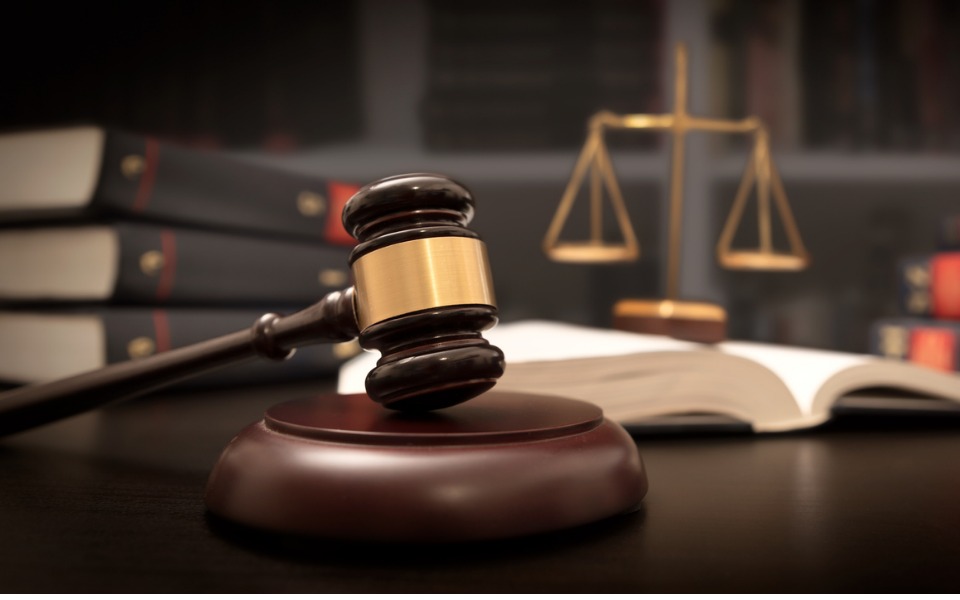
Public flogging of Muslim men: 4 cops sent to jail for 14 days; here’s what Gujarat HC said
A two-judge bench delivered the judgement after observing that public flogging was an act against humanity and pardoning such acts by police will only encourage lawlessness

In the case of the public flogging of Muslim men in Kheda in October last year, the Gujarat high court on Thursday (October 19) found four Gujarat policemen guilty of flouting Supreme Court guidelines aimed at preventing custodial torture and sentenced them to 14-day imprisonment.
A bench of Justices AS Supehia and Gita Gopi delivered the judgement observing that flogging men under police custody in full public view was “an act against humanity” and pardoning such acts will only encourage lawlessness.
The division bench headed by Justice Supehia said tying the complainants to an electric pole and publicly flogging them point to an act against humanity. The flogging by the policement was conducted in the open and the incident was not confined to Undhela village but it had travelled beyond, observed the bench.
The video of the public flogging had gone viral at that time.
During last year’s Navratri festival on October 3, a few members of the Muslim community reportedly threw stones at a garba event in Undhela village. The next day, on October 4, police rounded up a group of Muslim men, brought them to the scene of the incident and tied them to a pole and flogged them in public as the crowd cheered them on. A day later, videos circulated on social media showing the police officers flogging the men with sticks.
Violating SC's orders
Five victims, namely Jahirmiya Malek (62), Maksudabanu Malek (45), Sahadmiya Malek (23), Sakilmiya Malek (24), and Shahidraja Malek (25) approached the high court last year seeking action against 13 police officers, alleging that these officers acted in violation of the Supreme Court’s orders given in DK Basu vs State of Bengal case. In this judgement, the apex court had issued gudidelines for policemen to follow during arrests, which were not followed by the policement in Kheda and that they were liable to be charged for contempt of court.
In his observations, Justice Supehia noted that if government functionaries become law breakers, it is bound to breeed contempt of law and encourage lawlessness. Every man would have the tendency to become a law unto himself and this would lead to anarchy, he said, noting that no civilised nation would allow that to happen. The judge refused to accept the unconditional apologies given by the policemen.
Further, the bench observed that once a policeman makes an arrest, the right to life of a citizen cannot be set aside, which is guaranteed under article 21 of the Constitution of India. Such rights cannot be denied to convicts or people facing trials or any other prisoners in custody, said the bench.
Also, the bench pointed out that police officers should have the greatest regard for personal liberty of citizens as they are the custodians of law and order and hence they should not flout the law by stooping to "bizarre acts of lawlessness".
"Their duty… is to protect not abduct when an accused is in custody, whose fundamental rights are not abrogated in toto is dignity cannot be allowed to comatose," said the bench. The court also made several observations on the mental agony a victims of police torture undergo.
The bench rejected inspector AV Parmar, sub-Inspector DB Kumavat, head constable KL Dabhi, and constable Raju Dabhi’s plea against the imprisonment.
The policemen in their plea told the court that hitting people on their buttocks with a stick should not constitute custodial torture. Police superintendent Rajesh Kumar Gadhiya last year told the court that the group of men they had rounded up were allegedly part of a conspiracy to disrupt a garba event to create fear among the Hindu community. He claimed the four policemen resorted to force to maintain peace.
